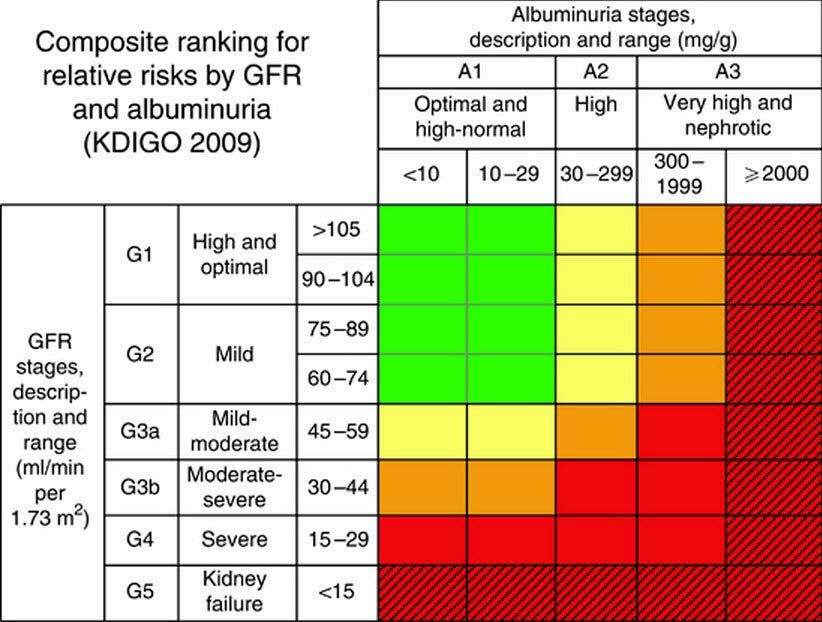What is nephrology and what do nephrologists do?
Nephrology is a medical specialty pertaining to the study of kidneys. A nephrologist is an individual who specializes in the care and treatment of kidney disease.
What is the difference between a nephrologist and urologist?
Nephrologists are medical specialists that treat conditions that affect the kidneys and their ability to function via non-surgical means. Urologists are surgical specialists that can treat structural or anatomical disorders of the kidney and urinary tract such as kidney stones, obstruction, kidney cancer, or prostate issues. Oftentimes both specialists may work together for optimum functioning of the kidney.
What is chronic kidney disease and how is it diagnosed?
Chronic kidney disease is a reduction in the kidneys’ ability to filter and clean the blood or abnormalities of the kidneys themselves. In order to be diagnosed with chronic kidney disease you need to have a reduction of your GFR to less than 60 for greater than 3 months, an abnormality of the kidneys on imaging, and/or abnormal cells or protein found in the urine.
What do the kidneys do?
Kidneys perform numerous tasks in the body such as balance electrolytes (sodium, potassium, etc.), help control blood pressure, remove waste products, balance fluids, make vitamin D, and produce a hormone that helps make red blood cells.
What causes kidney disease?
There are many potential reasons why people develop kidney disease. The most common causes are diabetes and high blood pressure. Other potential causes could be inherited disorders, certain medications or drugs, autoimmune disease, congenital conditions, or glomerulonephritis.
What is proteinuria? What causes proteinuria? Does my diet cause protein in my urine?
Proteinuria means protein in the urine. There are approximately a million tiny filters in each kidney that help clean the blood and normally these filters prevent almost all protein from spilling into the urine. When there is damage to these filtering units, this allows excess protein to spill into the urine, which is called proteinuria. Too much protein in the urine increases your risk of developing worsening kidney disease or even kidney failure. There are many different potential causes of proteinuria with the most common being diabetes, hypertension, and certain drugs. Normally your diet is not the reason why you have protein in your urine.
What is creatinine? What is a normal creatinine?
Creatinine is a waste product of muscle metabolism that we use to monitor kidney function as it is filtered by the kidneys. A normal creatinine depends on an individual’s size, race, sex, and muscle mass.
What is GFR? What is a normal GFR?
GFR or glomerular filtration rate is a measure of the kidneys ability to filter fluid and represents kidney function. Generally, when we discuss GFR it is an estimate from a formula that uses a patients age, sex, race, body size, and creatinine value to calculate that number. A normal GFR is generally above 90, although as we age a normal GFR may be slightly less than this.
How many stages of kidney disease are there?
There are a total of 5 stages of kidney disease. The stages of kidney disease are based off the GFR

Does kidney disease mean I need dialysis or transplant?
Most people that have kidney disease do not end up needing dialysis or a kidney transplant. Whether or not you need it depends on the stage of your kidney disease.
Can chronic kidney disease be cured?
There is currently no cure for chronic kidney disease. The goal is to control your risk factors that contributed to your kidney disease in the first place and prevent any further damage from occurring.
Does my kidney disease affect both kidneys?
Generally, when you have kidney disease it affects both kidneys, although there may be certain situations where only one kidney is affected such as kidney stones, kidney infection, congenital kidney disease, or cancer.
Is kidney disease painful?
Generally not, although there are certain conditions where it can be such as in individuals with kidney stones, infections of the kidney, or if you have a condition called polycystic kidney disease.
What diet do you recommend for someone that has kidney disease?
There is no one size fits all recommendation. It depends on what stage of kidney disease you have, what your blood work shows, and also what other medical conditions you have. In general, we recommend a diet that is rich in whole grains, fruits, vegetables, legumes, and healthy fats, moderate protein intake, and low sodium (salt) intake, although you should talk with your health care provider before starting any new diet.
Some examples could include:
What is end stage renal disease (ESRD)?
End stage renal disease is permanent and total failure of the kidneys leading to build up of waste products, toxins, fluids, electrolyte disturbances, etc. When this happens, your kidneys can no longer support life and you will need dialysis or a kidney transplant to stay alive.
What is dialysis?
Dialysis is a way to clean and filter your blood. It is used for patients that have developed end stage renal disease or occasionally for patients that suffer a significant kidney injury requiring temporary support until they recover. It takes over some of the tasks that your kidneys used to do such as balancing electrolytes (sodium, potassium, etc.), helping control blood pressure, removing waste products, and controlling fluid balance.
At what level of kidney disease am I eligible for kidney transplant?
When your GFR is estimated at 20 or less (which is in stage 4 chronic kidney disease).
What kidney transplant centers are near your office?
We refer patients to these kidney transplant facilities.
What dialysis centers do you go to?
See a list of our Dialysis Centers.
How long do appointments last?
For new patients, appointments may last up to an hour. For follow up visits, appointments may last up to 30 minutes.
What hospitals do you go to?
See a list of Hospitals we go to.
